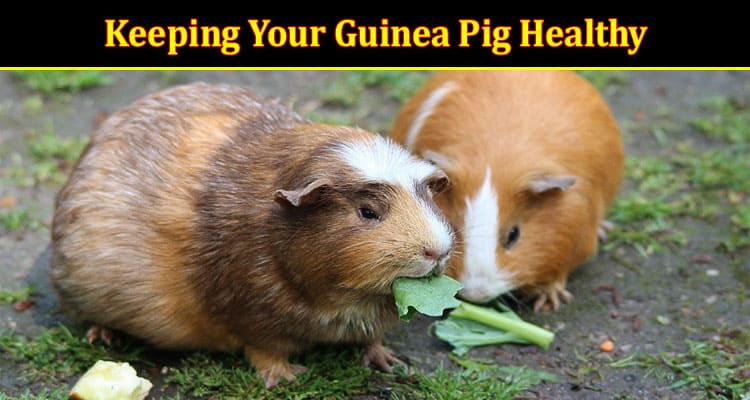Ensuring your guinea pig stays happy and healthy is the key to joyful companionship. Just like us, guinea pigs can experience health issues, but the good news is that they often show signs before things get serious.
If you’re a new guinea pig owner, then then this can help you. In this guide, you will learn the essential signs to look for in your guinea pig’s daily behavior and physical well-being.
Daily Observations
Guinea pigs are expressive little creatures, and their behaviors can reveal a lot about their well-being.
Behavioral Observations
Normal behaviors include exploring their surroundings, socializing with cage mates, and vocalizing gently. If your guinea pig suddenly hides a lot, becomes excessively lethargic, or shows signs of aggression, it’s time to pay attention.
Appetite and Water Consumption
Keep an eye on their eating habits. Guinea pigs love their food, and any sudden changes in appetite may indicate an underlying issue. Additionally, ensure they are consistently sipping water. A decrease in water intake or sudden disinterest in food requires prompt attention.
Physical Health Checks
Aside from daily observation, physical health checks are important, too. Here’s a simple way to do it to your guinea pig.
Fur and Skin
A guinea pig’s fur and skin can tell a tale of their health. Run your fingers through their fur, feeling for any lumps, bumps, or bald patches. A shiny and well-maintained coat is a positive sign. Be cautious of any signs of parasites or mites that might cause itching or discomfort.
Eyes, Nose, and Ears
Bright, clear eyes are a positive indicator of good health. Keep an eye out for any discharge around the eyes or nose, and listen for sneezing. Check their ears for cleanliness, as dirty ears may indicate infection.
Teeth and Mouth
Inspect your guinea pig’s teeth regularly. The incisors should be aligned, and their length should not be excessive. Watch for signs of difficulty eating or drooling, which could indicate dental issues.
Monitoring Breathing and Sounds
Your guinea pig’s breathing and sounds can tell you there’s something wrong with their health.
Respiratory Health
Healthy guinea pigs breathe quietly and without effort. Labored breathing or wheezing may signal respiratory distress. If you notice any unusual sounds during breathing, consult with a veterinarian promptly.
Vocalizations
Guinea pigs communicate through various sounds. While some are typical, like happy squeals during feeding time, unusual vocalizations or constant distress calls may indicate health concerns. Understanding their language is crucial for timely intervention.
Recognizing Digestive Issues
Recognizing if your guinea pig has digestive issues early can prevent it from getting worse. Here’s what you need to look out for:
Normal Digestive Habits
Guinea pig digestion involves a steady production of droppings. Regularly monitor their droppings for consistency and changes in color. Any sudden alterations might signify digestive issues.
Bloat and GI Issues
Bloat and gastrointestinal problems can be serious for guinea pigs. If you notice signs of discomfort, a bloated appearance, or irregular bowel movements, seek veterinary assistance promptly. A well-balanced diet plays a crucial role in preventing such issues.
Preventive Measures
Prevention is always better than cure; your guinea pig deserves a loving and responsible owner.
Regular Vet Check-ups
Schedule routine veterinary visits to ensure your guinea pig receives preventive care. Discuss vaccinations and general health checks to catch potential issues early. Building a relationship with an experienced exotic pet vet is essential.
Hygiene and Cleanliness
Maintaining a clean living environment is vital. Regular grooming helps keep their fur and skin healthy. Remove any hazards from their living space that might threaten their well-being.
Special Considerations for Senior Guinea Pigs
As guinea pigs age, they may encounter specific health concerns. Keep a keen eye on signs of aging, adjust care routines accordingly, and increase veterinary monitoring for your senior furry friend. Ensure they are eating the right guinea pig hay for their age.
A Healthy Guinea Pig Has a Responsible Owner
Keeping your guinea pig healthy involves keen observation and timely action. By understanding their daily behaviors and conducting regular physical health checks, you can provide the best care for your furry friend. Remember, preventive measures and a clean environment contribute to your guinea pig’s long and happy life.

